By Charmaine Deogracias Vera Files Philippine President Rodrigo Duterte will visit Beijing on Oct. 20 and 21, in what reliable diplomatic sources say is a…
Making life worth living.
By Charmaine Deogracias Vera Files Philippine President Rodrigo Duterte will visit Beijing on Oct. 20 and 21, in what reliable diplomatic sources say is a…
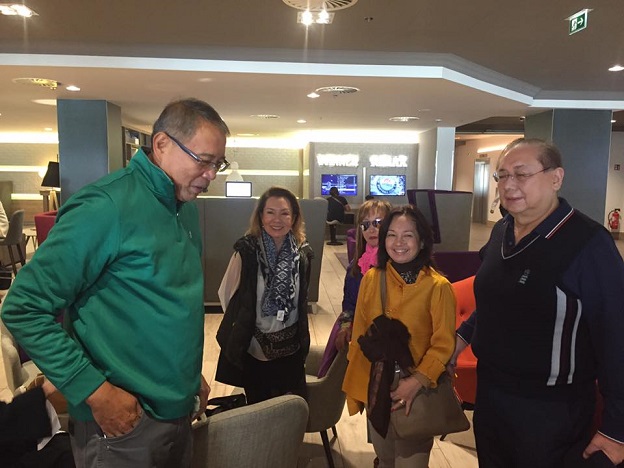
So traumatized and demoralized are the foreign service corps – with the damage control operation that they have to perform every time President Duterte curses other governments and international institutions plus the impending appointments of retired generals to ambassadorial posts – that many like the idea of former President Gloria Macapagal Arroyo as the next foreign secretary.
That’s the rumor in the diplomatic circle and all are in agreement that Arroyo, as former president, definitely has a better grasp of foreign relations compared to Foreign Secretary Perfecto Yasay, Jr.
One story going around in the DFA was the briefing given to Yasay in his first week at the DFA on human rights. After a lengthy briefing, Yasay asked: “Are we for or against human rights.”
Those in the room were flabbergasted, we were told.
Now I see how astute President Duterte is.
He can appear to be assuring you of his trust and confidence while actually cutting your neck.
That was what his July 19 video statement released by Malacañang on the status of Foreign Secretary Perfecto Yasay, Jr. showed.
In the video, a very formal Duterte in barong tagalog with the emblem of the President of the Republic of the Philippine behind and in front of him, said:
(I did this article for VERA Files.)
The government paid $7 million in legal fees to the international team that gave the Philippines its landmark victory against China over the disputed features in the South China Sea, a member of the Philippine delegation to The Hague hearings said.
The source who asked for anonymity said the $7 million was a ceiling in lawyers’ fees the government of President Benigno Aquino III insisted on, having learned a costly lesson from the case against the Philippine International Air Terminals Co. (Piatco) where, under an open-ended agreement, the lawyers’ fees reached $65 million.
The Philippines was represented in the two-and-a half year litigation by Foley Hoag LLP. The case against China was filed with the Permanent Court of Arbitration in The Hague, Netherlands on January 22, 2013.
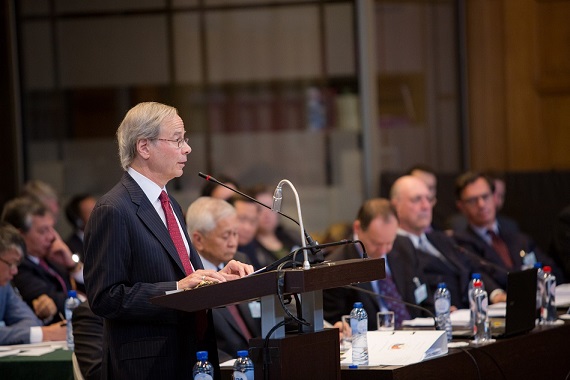
The $7 million (P328,996,500 at P47 to $1) was the third ceiling set, more than 65 per cent higher than the original contract fee of $4,212,000 agreed upon in December 2012 by then Solicitor General and now Supreme Court Associate Justice Francis Jardeleza and Paul S. Reichler of Foley Hoag.
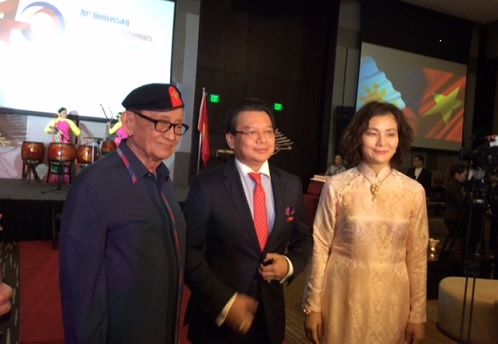
Former President Fidel V. Ramos said there are some things he has to discuss with President Duterte before he agrees to be the latter’s special envoy to China.
Duterte made the announcement during a tribute to him by his fellow Bedans at Club Filipino in Greenhills last Thursday and Ramos said, “It was noisy, there was no time to talk about it.”
Ramos said he is elated by Duterte’s confidence in him for the important job of repairing relations with China especially in the wake of the humiliation that had been rendered by the Permanent Court of Arbitration to the Asian behemoth in the case filed by the Philippines against its nine-dash lines and other activities in the Spratlys. But he said he is 88 years old.
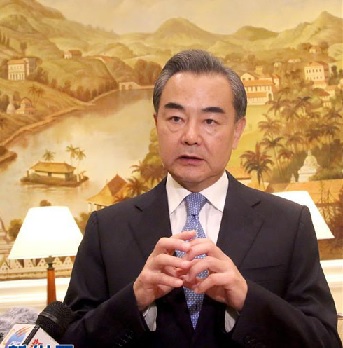
Definitely, not President Rodrigo Duterte.
If this sets the tone for post-Decision Philippine-China relations, there’s a good chance that talks on the disputed waters will achieve something positive.
Duterte had the good sense of letting Foreign Secretary Perfecto Yasay issue the statement who simply welcomed the decision and called for restraint and sobriety.
Yasay was heavily criticized by not looking happy over the decision that was overwhelmingly in favor of the Philippines.
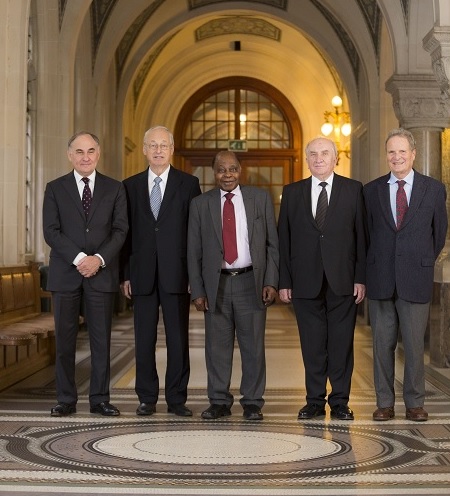
By Romel Regalado Bagares
And so the Philippines has just had its Nicaraguan moment as it clinched a unanimous decision in most of its 15 arbitral claims against Chinese “Nine-Dash Line” expansionism in the South China Sea.
The Permanent Court of Arbitration, in a landmark ruling released July 12 on the case In the Matter of the South China Sea Arbitration (it’s formal name, also referred to here as the Philippine Case), invalidated China’s claims over pretty much of the maritime areas in the region.
The Arbitral Court also clarified in favor of the Philippines the status of many features in the contested Spratly islands and Scarborough Shoal with both scientific and legal criteria, in relation to a resource-rich Exclusive Economic Zone (EEZ) and Continental Shelf.
The win recalls an earlier and similar David versus Goliath seminal ruling by an international tribunal, the case filed by Nicaragua against the United States in 1984, which was decided by the International Court of Justice in 1986. Here, the United States was sued by Nicaragua before the World Court over the former’s promotion of Low Intensity Conflict and direct military action in its territory through the mining of its harbors.
Key wins for the Philippines